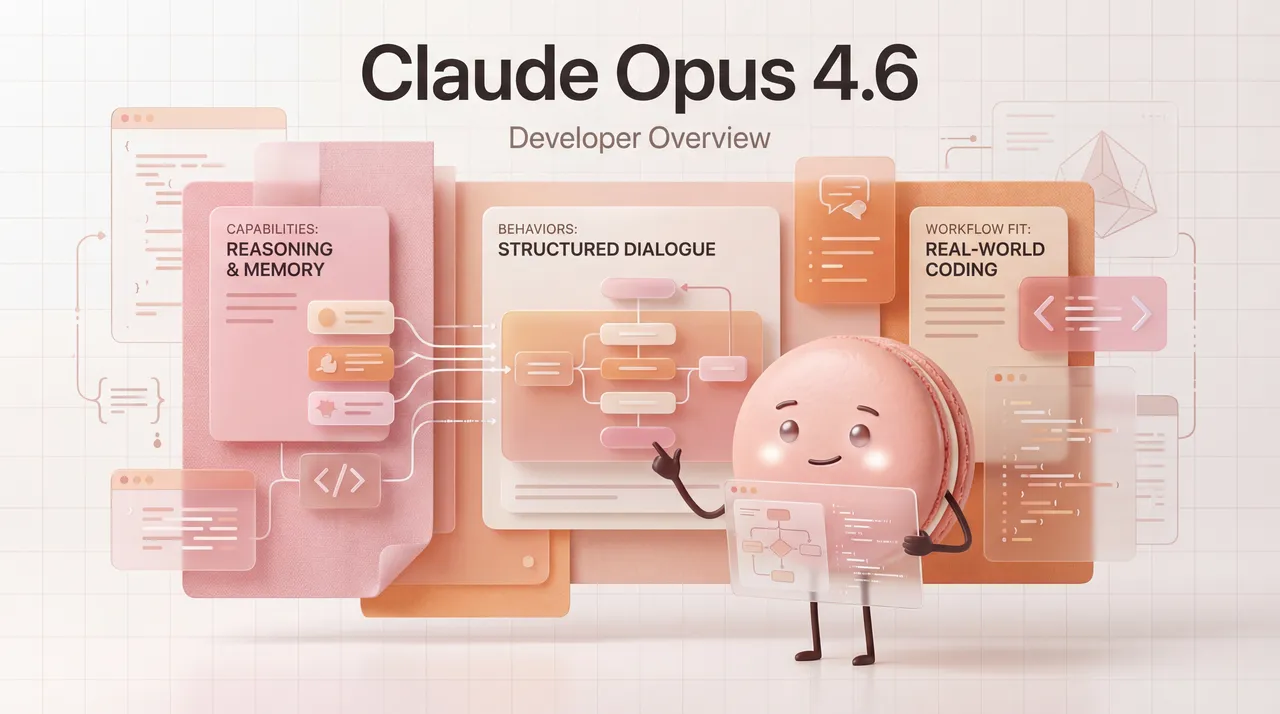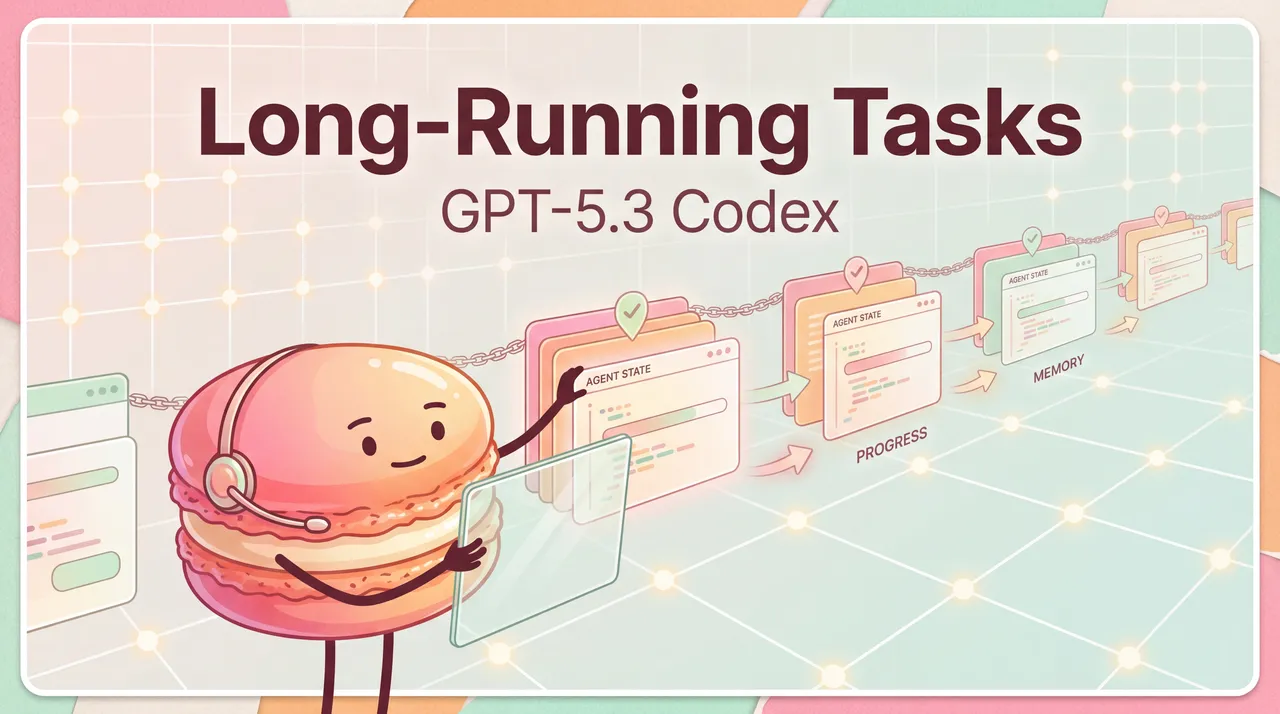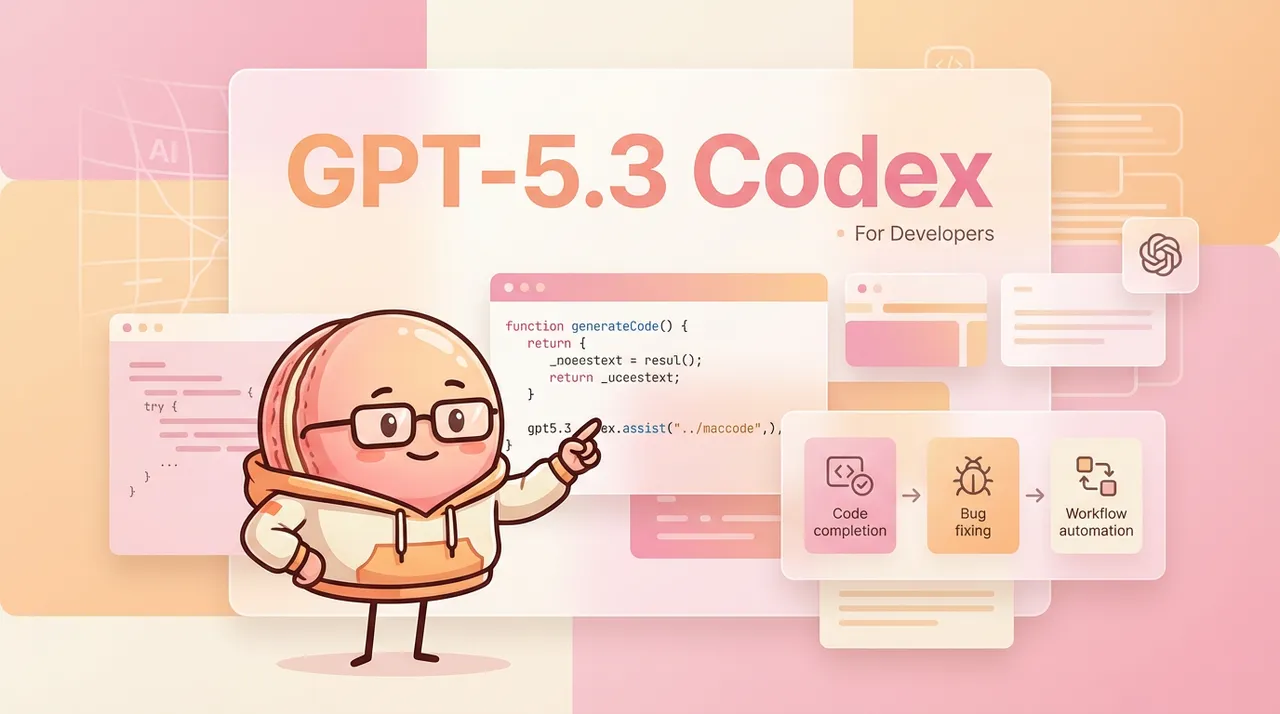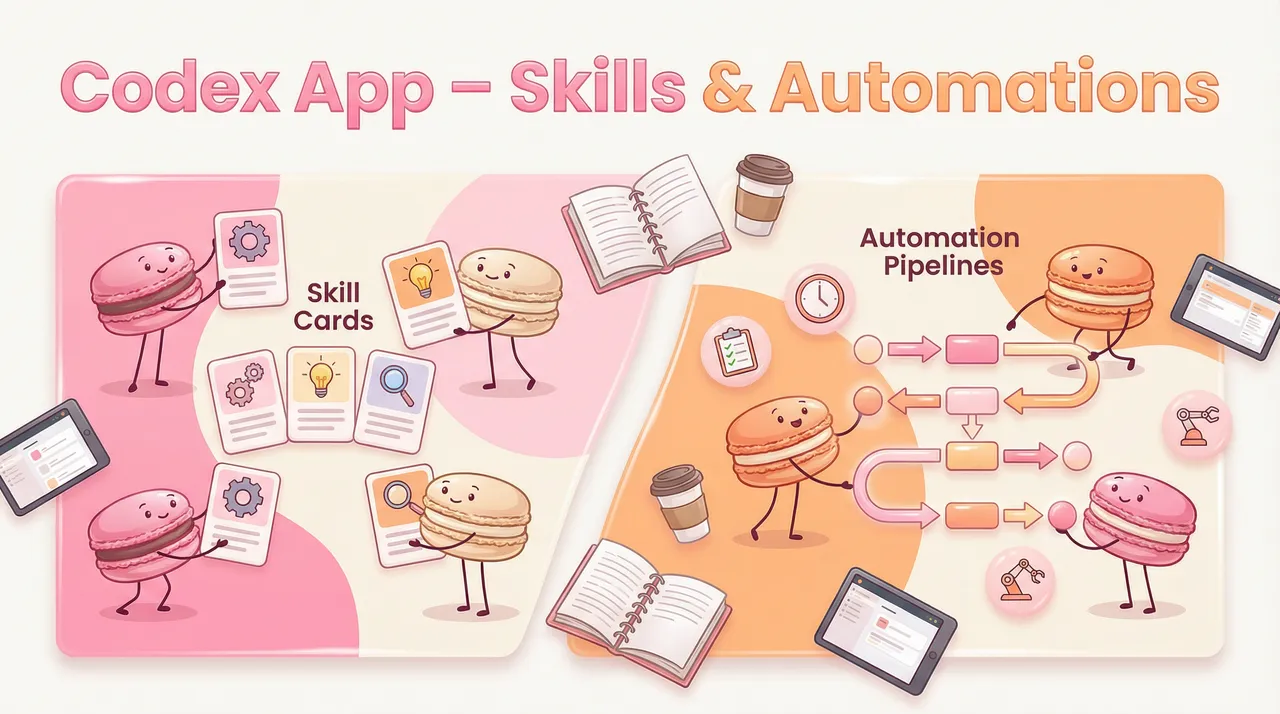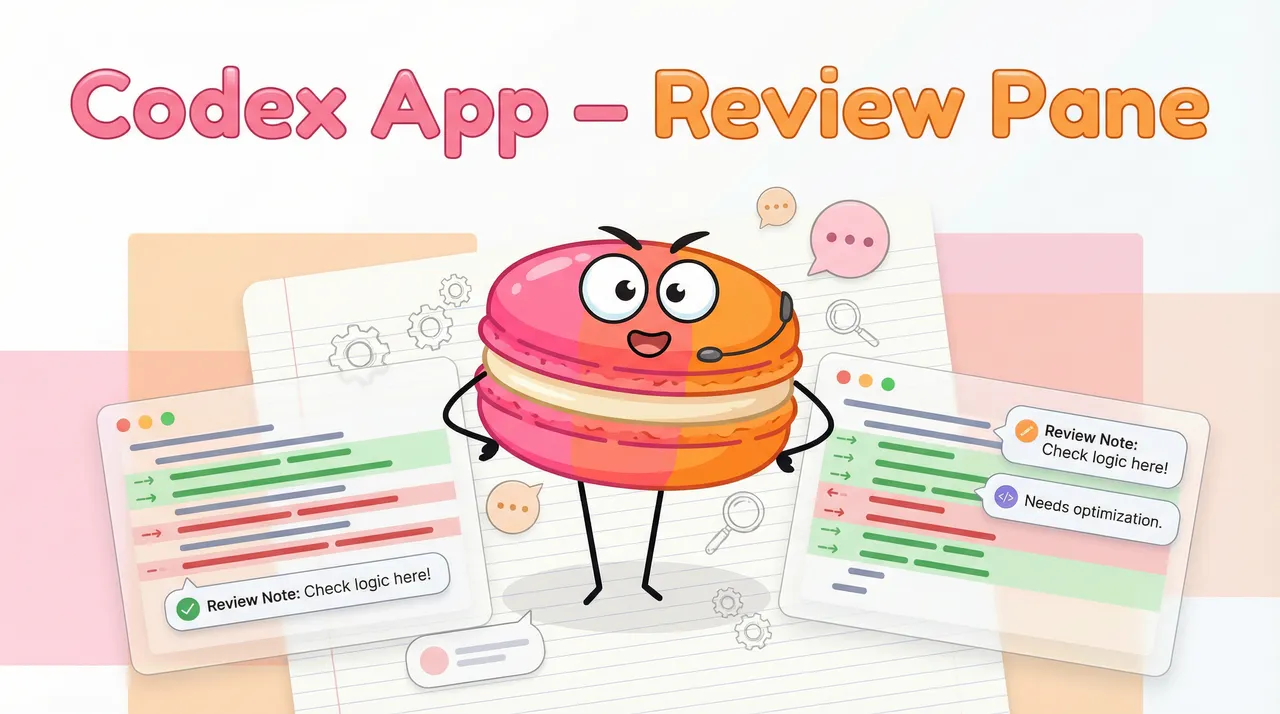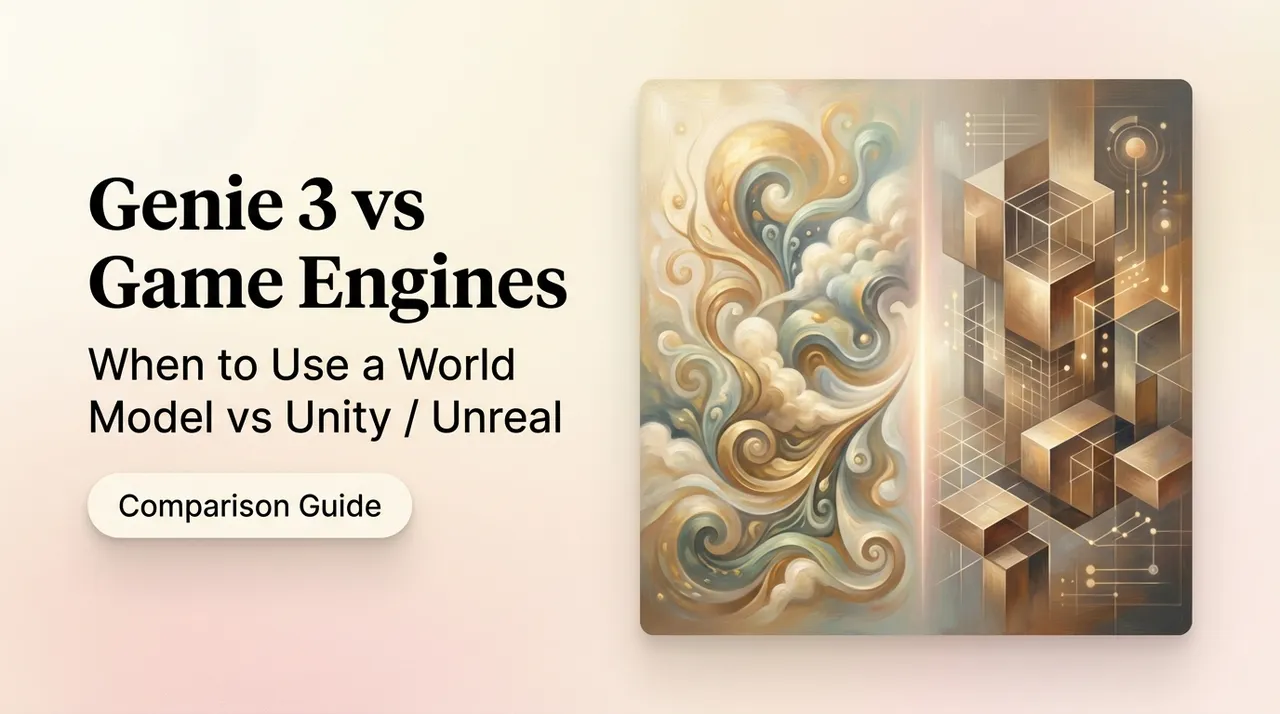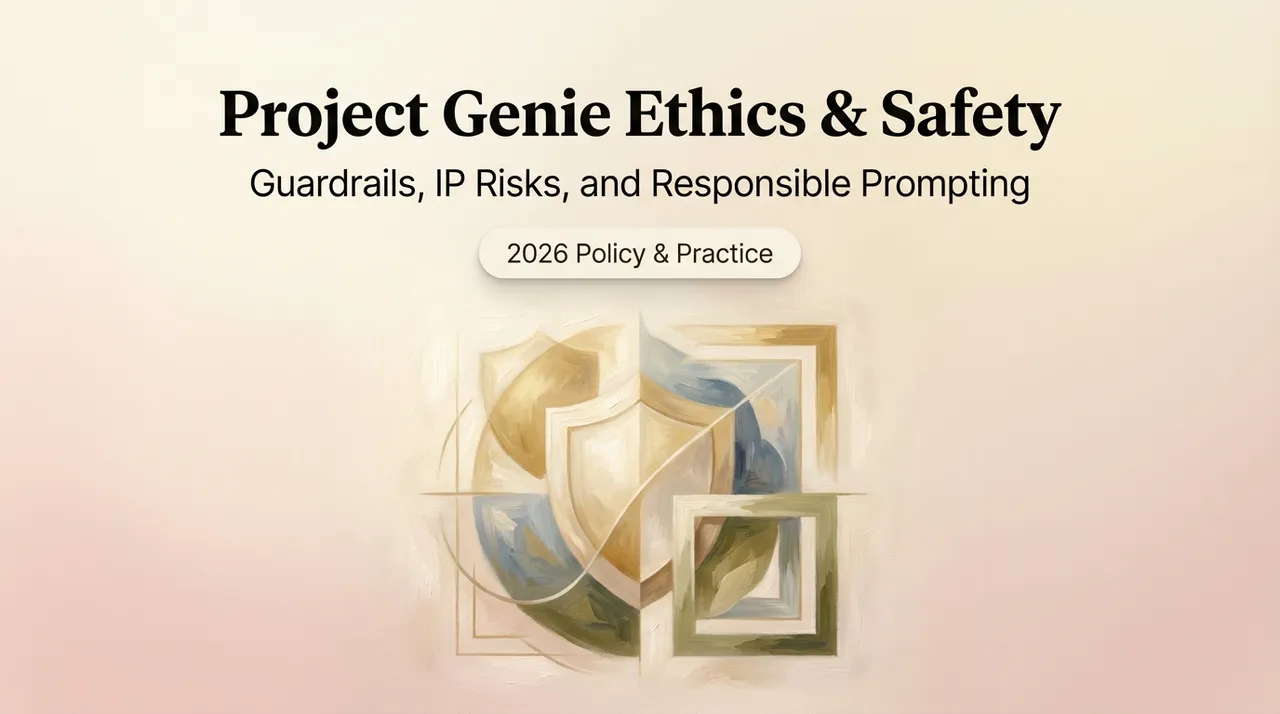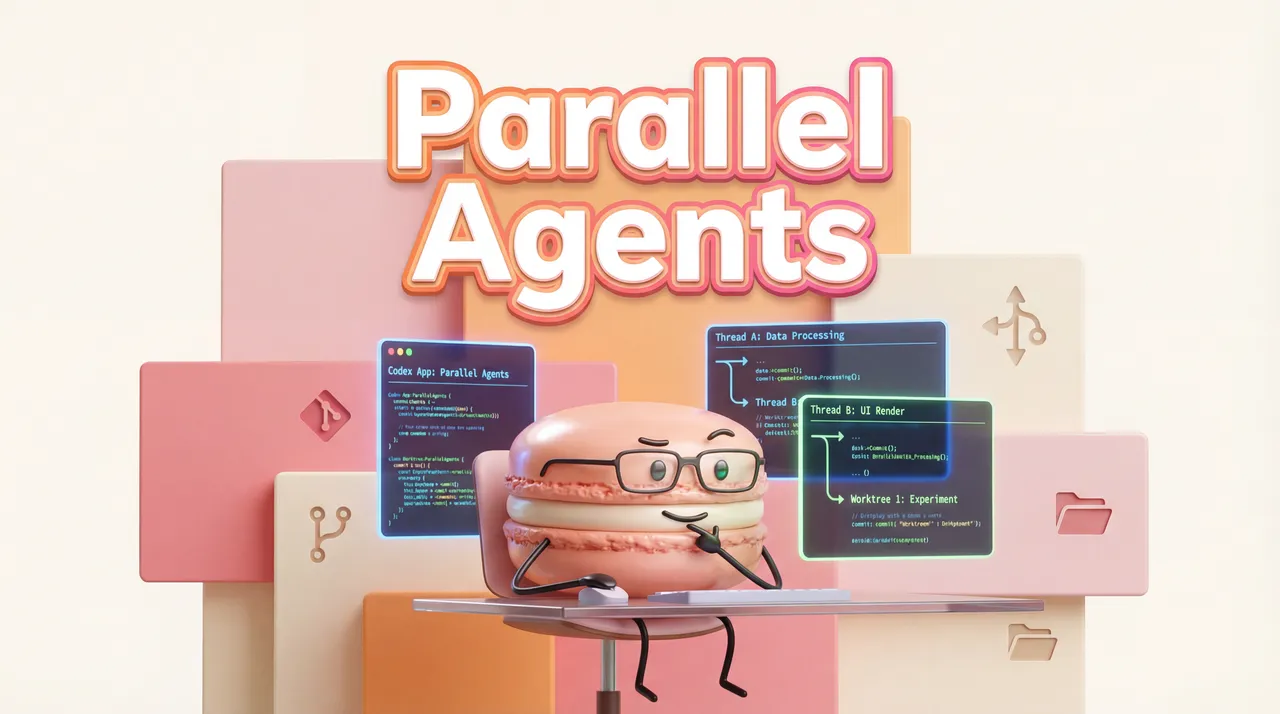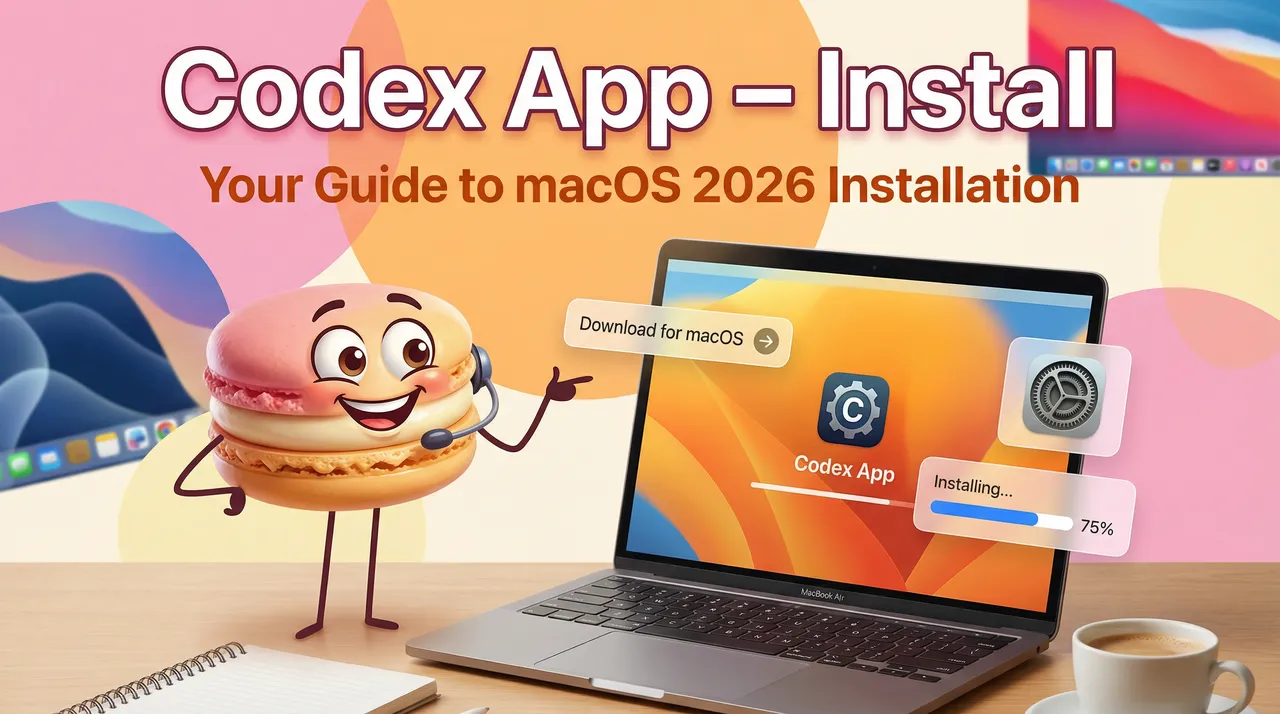Author: Boxu Li
The blank page can be intimidating, especially when what you need to write is deeply personal and high-stakes—like a college admission essay, a scholarship application, or a statement for a job or grant. It's tempting to turn to AI for help. After all, modern AI writing generators can produce paragraphs of text in seconds. But is it okay to use AI for a personal statement? How do you get help from an AI assistant without crossing into unethical territory or losing your authentic voice?
In this article, we'll explore how to ask AI to help draft your personal statement ethically. We'll highlight where an AI assistant is genuinely useful (brainstorming ideas, refining grammar) and where it shouldn't replace you (telling your story, expressing your voice). You'll learn best practices for prompting AI in a way that sources your own experiences instead of fabricating, how to structure your essay with the help of an assistant, and how to do a "voice check" to ensure the final piece still sounds like you. We'll also discuss an integrity checklist and whether or not you should disclose AI assistance in your application. By the end, you should feel empowered to use tools like Macaron's Personal Statement Builder workflow or other AI helpers as a writing coach—not as a cheating shortcut—so that the result is an essay that's polished, engaging, and 100% yours.
Where AI Helps—and Where It Shouldn't
Let's start by drawing a clear line between acceptable and unacceptable uses of AI in personal statement writing. Think of AI as a very smart assistant or editor: it can brainstorm with you, help organize your thoughts, and even suggest better ways to phrase something. What it can't do ethically is compose the core content of your personal statement from scratch. Admissions and selection committees expect that the experiences and reflections in your essay are your own. If an AI invents them or even draws from someone else's story, that's a breach of trust (and likely detectable, as we'll discuss later).
Where AI can effectively help:
- Brainstorming Personal Stories: Sometimes the hardest part is deciding what to write about. AI can prompt you with questions or ideas based on some info you give. For example, you can tell Macaron's AI, "Here are a few significant experiences I've had: [list of experiences]. Which of these sound most compelling for a personal statement for [college or program]?" The AI might highlight one and even ask follow-up questions to draw out details. It won't know anything you don't share, so it can't magically produce a story—but it can act like a friendly interviewer to help you recall and choose your best stories.
- Outlining and Structure: Personal statements often have a narrative arc or a logical flow (hook, background, challenge, growth, future goals, etc.). AI is excellent at organizing information. You can literally ask, "Can you suggest a good structure for an essay about how moving to a new city taught me resilience?" The AI might give a bullet-point outline: intro idea, setting the scene, the conflict, what you did, what you learned, how it prepares you for the opportunity you're applying for. This can save you a lot of time and provide a solid skeleton to build upon.
- Polishing Language and Grammar: Once you have a draft (written by you), AI tools can act as advanced grammar checkers and style editors. They can suggest rephrasing a sentence for clarity, catching passive voice or awkward phrasing, and fixing small grammar mistakes. Importantly, because AI like Macaron is context-aware, it can ensure these fixes still align with the tone you want (for instance, it won't accidentally change the meaning of a sentence because it knows the surrounding context). Think of this as a supercharged proofreader.
- Answering Generic Questions: If your personal statement needs to address certain prompts (like "Why do you want to study X at our institution?"), an AI can help you brainstorm possible angles—though ultimately your genuine reasons need to be articulated. Or if you need to incorporate certain themes (leadership, diversity, overcoming failure), you can discuss with the AI how to weave those in, based on examples from your life.
Where AI should NOT take over:
- Originating Personal Content: Any specific anecdote, emotion, or opinion that is central to your story should come from you, not the AI. If you prompt an AI with "Write a personal statement about learning from failure," it might generate a decent-sounding story, but it will be a generic failure story that could fit anyone—or worse, it might inadvertently plagiarize pieces of someone else's essay it saw in training data. It won't truly be your failure or your lesson. Using that would be dishonest and likely easy to spot as insincere.
- Fabrication and Embellishment: Some might think, "I'll have AI spice up my story to make it more dramatic." This is dangerous. First, fabrications (no matter who writes them) are unethical. Second, AIs are prone to hallucinate—they can generate false information very confidently. For example, if you tell an AI "I volunteered at a hospital for a while, please elaborate on that," it might concoct details like patient names or outcomes that never happened. Including any made-up detail, even minor, can be problematic if an admissions officer asks about it or if it reads as too extraordinary without supporting evidence. Always verify that every detail in your essay is truthful.
- Authentic Voice Replacement: Every person has a unique voice in writing, even if they're not conscious of it. Maybe you have a slightly humorous tone, or you're very straightforward and scientific, or perhaps poetic. If you let an AI write large chunks, you risk ending up with an essay that sounds like AI voice—which is often a bit too formal, generic, or just not quite human in its flow. Committees are increasingly aware of what AI-generated text looks like (and they have tools to detect it). But beyond detection, there's a subtler issue: your application as a whole should feel cohesive. If your grades, recommendations, and interviews present you one way, and your essay reads in a completely different voice, it raises red flags. Use AI to enhance your voice, not erase it.
By understanding these boundaries, you set yourself up to use AI as a support tool. It's like using Grammarly or Google—helpful resources, but not a substitute for your own thinking and writing. In the next sections, we'll dive into how to practically use AI to get the good (brainstorming, structure, polish) while avoiding the bad (plagiarism, loss of voice).
Prompting for Stories, Not Fabrications
The quality of help you get from an AI greatly depends on how you ask for it. A crucial tip is: base your prompts on your own experiences. You want the AI to work with the raw material of your life, not to invent new material. Here's how to go about it:
Start with a Personal Inventory: Before you even talk to the AI, spend some time recalling and jotting down key experiences, accomplishments, challenges, and moments of growth in your life relevant to the application. Think about what makes you you. This could be overcoming a specific obstacle, a project you poured your heart into, a family situation that shaped you, a hobby or passion that taught you skills, etc. Even seemingly small stories can be powerful if they reveal something important about your character or values. For example, maybe you once organized a neighborhood cleanup drive—perhaps not a headline event, but it could show leadership and community spirit, which might be great for, say, a scholarship on civic engagement.
Feed the AI your Ideas: Now, bring these points to the AI conversation. A good prompt might look like: "I'm writing a personal statement for [purpose]. I have these experiences that I think could be relevant: [bullet list of experiences]. Which of these do you think would make the most compelling story, and why?" Macaron's AI (or similar) can analyze the list and say something like, "The story about organizing the neighborhood cleanup stands out because it shows initiative, community impact, and personal motivation. You could discuss what you learned about leadership and perseverance from that." This helps you choose a direction. Notice, the AI is not creating the story, it's helping you evaluate your own stories.
Drill Down with Follow-up Questions: Once you pick a story or theme, use the AI to explore it deeply. You can prompt with: "I want to write about the neighborhood cleanup. Can you help me outline a narrative? Here's what happened: [give a brief chronological account of the event]. What details or reflections should I include to show growth?" In this process, you are feeding facts (what happened, how you felt, what was challenging) and the AI is maybe highlighting which of those facts are meaningful or where you might need more detail. It might respond, "Definitely mention the initial problem (trash in the park), how you felt seeing your community dirty, the moment you decided to act, how you rallied volunteers (any specific challenge or funny incident here?), and the end result (X bags of trash collected, maybe a new habit in the neighborhood). Reflect on how this changed your view on community action or what skills you gained, like event planning or resilience when few people showed up initially." Notice it might even ask you implicitly for details (like a challenge or anecdote during the process)—this is great, because it's prompting you to recall and articulate more.
Avoid Vague Prompts that Invite Fiction: If you just say, "Write me a personal statement about community service," the AI will generate a generic essay about community service with platitudes and possibly some fictional scenario. That's not useful. Instead, always anchor the AI in specifics from your life: names (if appropriate), places, emotions you felt, conversations that happened. The more real inputs, the more the AI's output will revolve around those and not random filler. Essentially, you're using the AI as a mirror and organizer for your own memories and insights.
Be Careful with "What if I don't have a story for X?": Sometimes a prompt requires something you feel you don't have a big story for, e.g., "Describe a time you overcame a significant obstacle." If you truly can't think of one, it's tempting to ask the AI for an example and pretend it's yours—do not do that. Instead, discuss with the AI something like, "I haven't had dramatic obstacles like moving countries or serious illness. The closest I have is when I struggled with math in 10th grade and almost failed, but then I worked really hard and improved. Do you think that could work as an 'overcoming obstacle' story without seeming trivial?" The AI might respond, "Yes, that can work if you frame it well—focus on what you did to improve, who helped you, and how you changed your study approach. Emphasize why it was significant to you (maybe it sparked your interest in engineering after you conquered it)." See, we're still using a real experience; the AI is just helping frame it, not manufacturing a more exciting one. Honesty is key. A sincere story about a small obstacle can be very effective if told with reflection and sincerity; a fabricated story about a huge obstacle will ring hollow (and can be catastrophic if discovered).
By prompting for stories and details that are authentic, you ensure that the content of your essay remains genuinely yours. AI's role is like a journalist helping you interview yourself—drawing out the gold that's already in your memory. With that content in hand, the next step is shaping it into a well-structured draft.
Structure First: Outline, Beats, Transitions
A compelling personal statement usually has a clear structure that takes the reader through your story or argument smoothly. As mentioned, AI is extremely helpful in creating and refining the outline of your essay. Here's how to leverage it:
Ask for an Outline: Once you have your core story or theme identified (through brainstorming as above), you can straight up ask the AI for a suggested structure. For example: "Help me outline this personal statement. I want to start with a vivid memory of seeing the park full of trash, then move to how I organized the cleanup, and end with what I learned about community. What would be a good sequence and paragraph breakdown?" The AI might suggest:
- Hook: A descriptive scene of the dirty park and your feeling of dismay.
- Background: Why it mattered to you (maybe you played there as a kid, or you value nature).
- Initiative: How you decided to act, what steps you took to plan the cleanup.
- Challenge: Difficulties faced (people being skeptical, low initial turnout, etc.) and how you overcame them.
- Climax: The day of the cleanup, how it went, how you felt seeing the change.
- Resolution/Reflection: What you learned, how it changed your perspective, and how it connects to your future goals (like studying environmental policy, etc., if relevant).
This outline gives you "beats" to hit—key moments and turning points.
Refine the Outline Collaboratively: You don't have to accept the first outline whole cloth. Maybe the AI suggested starting with the park scene, but you think it might be stronger to start with a short dialogue (like a neighbor saying "Someone should really do something about this mess" which triggered you to think I am someone). You can tweak the outline and then ask, "What do you think if I start with a brief dialogue instead of pure description? How could I integrate that?" The AI can adapt the outline accordingly ("Hook: Short dialogue with neighbor complaining about mess, which sets you thinking…"). This back-and-forth is like working with a writing coach to get the blueprint just right.
Transition Guidance: A common challenge when writing is connecting paragraphs or ideas. AI can help by suggesting transition sentences. If your outline bullet points feel a bit disjointed, ask: "How can I transition smoothly from the part about planning the event to the day of the event? I want it to flow logically." The AI might come up with something like, "After weeks of preparation and flyers around the neighborhood, the big day finally arrived." or "With the plan set, all I needed now was for people to show up on Saturday morning." These little bridge sentences help the essay read cohesively. It's still you deciding what fits best, but the AI offers options.
Ensuring the Structure Highlights You: Remember, structure is not just about chronological order—it's about emphasis. A personal statement has limited words, so you want to emphasize the most impactful parts of your story (usually the "change" or "growth" part). AI can remind you if your outline is spending too many words on setup versus insight. For example, if your outline devotes four paragraphs to the narrative and only one short one to reflection, the AI might gently advise, "Make sure to give enough weight to what you learned and how you'll apply it; that's crucial for admissions." Don't ignore those hints. Committees love to see reflection and self-awareness. So maybe you compress some narrative bits to leave room for a meatier conclusion of insight. The outline phase is where you decide those balances, and having an AI perspective can catch things you might miss (like if you forgot to tie the story back to why you want to join that specific program—an AI might notice that and suggest adding it).
Write in Layers: Once the outline is solid, you can draft each section. Some people like to have the AI flesh out a section to get past writer's block. If you do that, treat the AI draft as a rough suggestion, not final text. For instance, you could say, "Draft a paragraph for point #3 (Initiative) describing how I put up flyers and convinced a few friends to help, highlighting that I was nervous." It will draft something. Use it as a starting point if you must, but then edit heavily to infuse your voice and specific details. Perhaps it wrote, "I printed 50 flyers and hoped for the best." You remember actually printing 100 and specifically putting them in mailboxes. Change it. The AI might say, "I was nervous no one would come." Maybe you had a particular thought or a sleepless night worrying about that—add it. This way, the structure and some phrasing might come from AI assistance, but the content stays personal.
After laying out a structured draft, the next step is to review it for voice and authenticity. That's where we do a "voice pass."
Voice Pass: Rewriting in Your Cadence
Now you've got a draft—possibly a mix of your writing and AI-suggested sentences. It's crucial to ensure the final product sounds like you. The "voice pass" is an editing round where you read every sentence and ask, "Would I naturally say it this way? Does this sound like something I'd write, or does it sound a bit robotic or like someone else?"
Identify Your Natural Voice: Think about other things you've written or how you speak in a formal yet personal setting. Are you conversational? Do you use humor or are you more serious? Do you tend to use short sentences or long, flowing ones? There's no "right" voice, just your voice. If you're not sure, one trick is to read your essay draft out loud. You'll quickly catch phrases that feel unnatural. Maybe the AI or even you in formal mode wrote "Subsequently, I ascertained that community engagement was my true calling." When reading out loud, you might cringe because you'd never say "ascertained" or "true calling" in real life. Maybe you'd feel more natural saying, "In the end, I realized that I had discovered a real passion for community engagement." Keep the meaning, change the diction to sound like a human (specifically, you at your articulate but genuine level).
Simplify where needed: AI-generated text can sometimes be overly verbose or use ten-dollar words. For a personal statement, clarity and sincerity beat jargon and fluff. If a sentence is convoluted, break it into two. For example, "The culmination of these efforts was a profound enhancement in my confidence and a validation of my belief in the power of collective action" could be "In the end, I felt far more confident. The experience proved to me that when people come together, we can really make a difference." The second version is straightforward and heartfelt. It might use more "I" statements and plain language—and that's okay! Admissions officers prefer a clear, authentic voice to something that reads like an academic journal.
Add Personal Flairs: This is also a good time to inject any personal touches that reflect you. Maybe you have a favorite saying or a little quirk in how you phrase things. If it's not too informal, it can make your essay stand out. For instance, maybe whenever something turns out better than expected, you say "color me surprised." If you had a moment of surprise in your story, using that phrase could add character. Just be mindful of the overall tone—balance professional and personal. You want to avoid slang or jokes that might not land, but a tiny bit of your unique phrasing can be refreshing in a pile of essays.
Ensure Consistency: If English is not your first language or you have a particular dialect, don't let the AI "wash out" your voice completely. For example, if British English is your norm, keep the "organisation" spelling in your CV and don't let an AI flip everything to "organization" in your essay (consistency matters). Or if you naturally speak in short sentences, it's fine if your essay also has a choppy, emphatic style—it might even convey urgency or enthusiasm. Consistency across your application is something admissions readers look for subconsciously; it's the narrative of you. So ensure your essay's voice aligns with, say, your interview style or the personal descriptions in your recommendation letters (of course you don't see those, but you might guess that a teacher described you in a certain way that should echo in your own writing).
Macaron's Memory Advantage: If you're using Macaron specifically, one cool aspect is its Deep Memory. Over time, as you've chatted or used it for other writing, it may have picked up on how you phrase things. Macaron's personal AI aims to adapt to you. That means when it gives suggestions, those suggestions might already tilt towards your style. But still, a careful human review is key. Use Macaron's familiarity as a guide, but trust your own ear too.
At the end of the voice pass, you should have a draft that feels authentic. It should sound like the most articulate, polished version of yourself—like you on your best day, not like a completely different person. Now, one more important step before you finalize: run through an integrity checklist and consider disclosure.
Integrity Checklist & Disclosure Options
Before you hit submit on that personal statement, it's wise to double-check a few things to ensure you haven't inadvertently crossed any lines in using AI assistance. Here's an integrity checklist to review:
- All the stories and claims are true: Read through each anecdote and fact. Can you back this up if asked in an interview or with evidence? If you say "we collected 50 pounds of trash," is that roughly accurate or did you just guess? It's okay to estimate if it's reasonable, but don't make up an award or a leadership role you didn't actually have. If you wrote "I led a team of 10 volunteers," make sure it was indeed around 10 and you did coordinate them. Many admissions interviews include questions like "Tell me more about X that you mentioned in your essay." You want to be able to naturally and truthfully expand on anything you wrote. If something gives you pause, better to tweak or remove it now.
- The essay is in your words: We covered voice, but this also means plagiarism. It's unlikely you intentionally copied someone, but AI could accidentally produce a sentence that exists elsewhere (especially generic phrases). Use a plagiarism checker if you have access to one, just to be safe that your final text isn't too similar to any published sources. More commonly, ensure you're not using any famous quotes or clichés that you don't need. For example, starting with "Be the change you wish to see in the world," (Gandhi) is overused and not your own voice. If you have something like that, replace it with your own words or remove it.
- Balanced credit: If your story involves others or a team, check that you've accurately credited others for their part while highlighting your own role. For instance, "I spearheaded the project alongside two friends" is better than implying you alone did everything if in reality it was a group effort. Honesty about collaboration is part of integrity.
- No AI-generated false polish: Sometimes AI tools will suggest very flowery, grandiose concluding lines like "Thus, I stand at the precipice of my future, eager to contribute my mite to the greater good." Does anyone actually talk like that? Unlikely. And admissions officers can sniff out when an essay tries too hard or suddenly goes Hallmark card in the conclusion. Make sure your ending (and entire essay) avoids exaggerated or generic sentiments. It's fine to be heartfelt, just keep it grounded in your genuine feelings.
Now, about disclosure – should you tell the admissions committee that you used AI assistance in crafting your essay? This is a gray area currently. Here are some considerations:
- If not asked, generally no need to disclose minimal assistance: Using AI for brainstorming or editing is, in essence, similar to getting help from a tutor or using a spell-checker. It's a tool. Most application guidelines don't yet explicitly mention AI. If you used it responsibly (as we've outlined), you haven't violated any rules—the ideas and words are still yours. In such cases, you typically wouldn't write "P.S. I used an AI tool to help proofread this." That could actually raise unnecessary doubts. Admissions expects that you might have gotten feedback from some source (peers, mentors) and that's okay as long as the content is yours.
- When disclosure might be considered: If an application or institution specifically asks about AI use or has an honor code statement that might cover it, then you should be truthful. For example, a scholarship application might ask, "Did you receive any assistance in writing this essay? If so, explain." In that case, you can say something like, "I used an AI-based writing assistant for grammar suggestions and to help organize my thoughts, but the experiences and wording are my own." Keep it brief and factual. Another scenario: if you're submitting to a program related to AI or writing and you want to mention it as part of your story ("Interestingly, I even leveraged an AI tool to refine this essay, showing how I integrate technology into my life"), you could—but be cautious; that can sound like pandering or could backfire if they have a strict no-AI stance.
- Know the Policy: Some educational institutions are starting to clarify their stance on AI-generated content. If your target program has said "essays must be solely the work of the applicant without AI assistance," then obviously you should refrain from using AI, or if you did, you might consider rewriting without it to be safe. Macaron's philosophy is to always respect such guidelines. Ethically, using AI to heavily write an essay where it's banned is akin to getting someone else to write it—don't do it.
- If in Doubt, Ask Privately: If you're really unsure, you could reach out anonymously to the admissions office or check forums where officials might have weighed in. However, keep in mind that raising the question might make them more strict about it. Generally, the approach we've described (AI as helper, not author) is within the spirit of fair assistance, similar to getting feedback from a human.
One more angle: If you do end up disclosing AI usage, frame it in a positive light, showing that you led the process. For example, "I used modern tools such as an AI assistant to polish my writing, much like I would use any research or editing tool, but the ideas, narrative, and voice are entirely my own." This underlines you are not outsourcing your thinking.
By completing the integrity checklist and handling (or deciding on) disclosure, you are ensuring that you can submit your personal statement with confidence. You'll know you used cutting-edge resources responsibly to put your best foot forward without stepping over any ethical lines.
Example "Ask AI" Prompts for Personal Statement Assistance
To make all this advice more concrete, here are some sample prompts you could use with Macaron or another AI when working on your personal statement. Remember, always tailor them to your own situation:
- Brainstorming Prompt: "I'm applying to XYZ University's Biology program. I have experiences like raising butterflies in my backyard, volunteering at a hospital, and winning the science fair with a botany project. Which of these experiences sounds most compelling for a personal statement and why?" (This prompt helps the AI evaluate which story might align best with a biology program and have depth.)
- Detail Digging Prompt: "I want to write about volunteering at the hospital. Here are some key things I remember: [list a few memories, feelings, challenges]. Can you suggest what other details or reflections I should include to show personal growth from this experience?" (This gets the AI to act like a coach drawing out more substance from your memory.)
- Outlining Prompt: "Given these points about my science fair project – [point A, B, C] – can you help me outline a personal statement? I want to start with a hook about the moment it won, then flashback to the hard work preparing, then connect it to my passion for research." (The AI will provide a structured outline matching this narrative approach.)
- Refining Language Prompt: "Here's a sentence from my draft: 'Then I had to overcome many problems during the project, which was hard.' Can you suggest a stronger, more specific way to phrase that?" (The AI might respond with a more vivid sentence like, "I encountered setbacks—like a failed experiment two days before the fair—that tested my resolve.")
- Voice Check Prompt: "Does this paragraph sound like a genuine student voice? 'Utilizing the aforementioned experience, I garnered profound insight into the intricacies of human nature.' I'm worried it sounds too stiff." (The AI will likely agree it's stiff and might suggest a rewrite: "Through that experience, I gained a deeper understanding of human nature." This confirms your instinct and gives a simpler phrasing.)
Using prompts like these, you make the AI a partner in the process. It can accelerate the parts you find tough (like self-analysis or wordsmithing), leaving you to concentrate on authenticity and final decisions.
FAQs
Q1: Is using an AI personal statement generator considered plagiarism or cheating? It depends entirely on how you use it. If you were to have an AI write your entire personal statement with little to no input from you, and you submit that as if you wrote it – yes, that's essentially cheating and could be considered a form of plagiarism (the ideas and words aren't truly yours, and you're misrepresenting the origin). However, if you use AI as we've described – to brainstorm ideas based on your life, to structure your own thoughts, or to polish your own words – then you are still the author of the essay. In that case, the AI is more like a tutor or tool. It's similar to getting feedback from a teacher or using a thesaurus, just more advanced. No admissions policy has an issue with you getting some help to improve your writing; they just want to ensure the substance (the story, the motivation, the character revealed) is genuinely yours. Also note: many universities and scholarship boards now run essays through AI-detection or plagiarism software. If an essay is entirely AI-written, there's a risk it gets flagged. So the safest, most ethical approach is to have the AI assist but not replace you. If you follow that, you are not plagiarizing – you're collaborating with a tool to present your best self, which is within ethical bounds.
Q2: How can I ensure my personal statement stays original and unique if I use AI help? The key is to ground everything in your unique experiences and voice. Think of it this way: thousands of applicants could use the same AI tool, but none of them have your life story. So lean into what makes you different. Use the AI to highlight those differences, not to iron them out. Concretely: fill your essay with specific details that only you could write. If you mention a mentor, name them ("Mrs. Thompson, my 10th grade teacher"). If you describe an event, include sensory details ("my hands were shaking as I handed out the flyers in the rain"). Those specifics keep it original. When editing with AI suggestions, double-check that the final text isn't overly generic. If the AI returns a phrase like "I learned the value of hard work," try to spice it up with what specifically you learned (e.g., "I learned that hard work means doing even the boring tasks diligently, like when I spent two weeks logging data every evening"). Also, after you're done, run your essay through an AI detector or plagiarism checker if you're worried. It's not 100% reliable, but if it comes back with "99% likely AI-written," that's a sign you let the AI overtake the writing. In that case, revise more in your own words. Remember, originality isn't about fancy phrases – it's about your story and perspective, which no AI can replicate unless you feed it.
Q3: Should I tell the admissions committee or readers that I used AI assistance in writing my essay? In most cases, you don't need to explicitly mention it. Admissions officers are evaluating the content of your essay, not how you arrived at the final draft. As long as the content is honest and authored by you (with permissible help), there's no obligation to bring up AI. In fact, over-emphasizing it could distract from your story. That said, you must follow any specific instructions given by the application. If there's an honor code statement like "I certify this essay is my own work," you can sign that in good conscience if you used AI only as a tool (much like you'd still sign it if a teacher gave feedback on a draft). If they explicitly ask about AI, answer truthfully and focus on how you used it responsibly. The landscape is evolving, but currently, disclosure is generally not expected for moderate use. One notable exception might be if you are in a field related to AI or writing and want to make a point about it in your essay itself – but even then, it's better used as a minor mention ("…even leveraging an AI writing assistant to refine my statement taught me the importance of iteration and careful editing") rather than a major point. Ultimately, admissions cares about you, your capabilities, and your potential. If your essay communicates those effectively, how it was crafted isn't usually center stage.
Writing a personal statement with the help of AI is a bit like hiking with a smart, supportive companion who points out the best path and maybe carries some of the load – but you still have to walk the trail. By incorporating AI wisely, you can produce an essay that is authentic, well-structured, and polished. Macaron's Personal Statement Builder (and similar AI tools) are there to help you brainstorm, stay organized, and refine your words, all while keeping you in the driver's seat.
As you apply these best practices, you'll likely find that the process itself is enlightening. You might discover new insights about your experiences when an AI prompts you to dig deeper. You'll become a stronger writer as you edit AI suggestions into your own voice. These are skills and self-knowledge that go beyond a single essay – they'll serve you in college and beyond.
Good luck with your personal statement, and remember: the power of your story comes from its honesty and individuality. AI can help illuminate and elevate that power, but it's your story that shines in the end. Happy writing, and if you choose to, let Macaron give you a helpful boost in crafting a personal statement that truly sounds like your best self.

